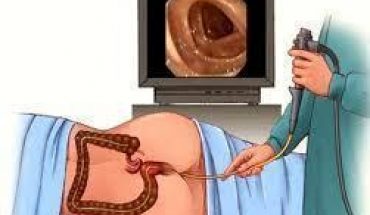Indigestion is one of the most uncomfortable physical maladies that may face anyone. There are different symptoms of indigestion that persons may or may not experience depending on the individual and the cause of the indigestion. Indigestion is often one of those loosely used medical terms that most people use to describe any discomfort in the stomach and chest regions of the body. However, what may be interpreted as indigestion may not be indigestion and is possibly reflective of something more serious. Indigestion and the accompanying discomforts may be as a result of a myriad of reasons ranging from simple indigestion to that of a serious underlying problem.
Causes of Indigestion Symptoms
Indigestion symptoms may be the result of indigestion itself or due to more serious problems such as gastroesophageal reflux disease, gall bladder disease or even ulcers. The term indigestion is also used to describe the discomfort that occurs with eating too much, and consequently being too full after a meal. This is also known as dyspepsia and is often accompanied by burning and pain in the upper stomach. This feeling of being too full is also known as bloating. It should be noted that stress and stressful periods exacerbate the condition of indigestion. The use of medication (for example aspirin, oral contraceptives and steroids ) may also irritate the stomach and result in indigestion symptoms. Other conditions such as ulcers, abnormalities in the digestive track and even emotional problems such as anxieties and depression may result in digestive issues and by extension indigestion symptoms.
Poor lifestyle choices may also result in indigestion symptoms. A fast lifestyle that induces stress and fatigue may increase the severity of indigestion symptoms, as well as eating too much, too quickly or eating foods that are very high in saturated fats. Consuming too much alcohol on a regular basis may also result in indigestion symptoms which can become chronic if not tapered.
Indigestion Symptoms
Indigestion symptoms can be many and varied. They may include but are not limited to burning, abdominal pain, nausea, vomiting, bloating, belching, flatulence (gas), a growling stomach and sometimes an acidic taste in the mouth. All of these symptoms may not be simultaneously present in an individual as some persons may experience only one or the other or a combination of two or three symptoms. Additionally, these symptoms may be mild or chronic depending on the cause of the indigestion. If persons continue to experience these symptoms over a prolonged period, they should visit the doctor to be properly diagnosed as the cause may be more serious than just mere indigestion.
Treating Indigestion Symptoms
Depending on the symptoms and their severity, indigestion can be treated in many different ways. If your indigestion symptoms are as a result of lifestyle choices, then you can take corrective measures by making certain lifestyle changes. For example, by making efforts to eat properly, to exercise regularly and taking strides to keep your stress levels low, you can greatly reduce the effects of the indigestion symptoms you experience. Treating one’s indigestion symptoms may also require steps such as discontinuing a particular medication, if this was the cause of the symptoms. To get the correct treatment for your indigestion symptoms it is best to consult your General Practitioner to get the best diagnosis and subsequent treatment.





